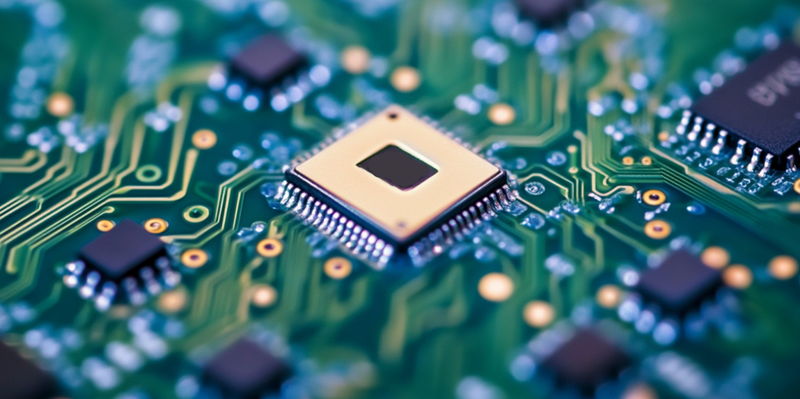The leaked specifications of AMD’s upcoming Ryzen 7 9800X3D processor, scheduled for release on November 7, have generated significant buzz in the tech community. The primary excitement revolves around the potential benefits this new CPU could offer gamers and overclockers, particularly when assessing its improvements over the current AMD Ryzen 7 7800X3D. Initial leaks indicate noteworthy advancements in clock speeds and overclocking capacities, which may spell substantial performance boosts for those seeking top-tier gaming experiences.
Technical Overview of Ryzen 7 9800X3D
Enhanced Clock Speeds and Zen 5 Architecture
A major revelation from the leaked specifications is that the Ryzen 7 9800X3D will harness eight Zen 5 cores, delivering a base clock speed of 4.70GHz that can reach up to 5.20GHz. This translates into a 0.20GHz increase over the Ryzen 7 7800X3D, suggesting a more robust performance out of the box. The unlocked CPU multiplier is particularly intriguing, as it allows for manual overclocking—an option that was notably absent in AMD’s previous CPUs incorporating 3D V-Cache technology. This development is expected to attract a broader audience of overclocking enthusiasts interested in pushing their systems to the limits.
Furthermore, the increase in clock speed and the integration of Zen 5 cores indicate a leap forward in architecture, enhancing the processor’s overall efficiency and computational power. The Zen 5 architecture is poised to bring incremental performance improvements and better thermal management, crucial for extended gaming sessions and high-demand applications. Although the exact architectural improvements are yet to be fully disclosed, the higher base and boost clocks can be indicative of an optimized core design and manufacturing process, promising tangible gains for users engaged in intensive tasks.
Leveraging 3D V-Cache for Gaming
Another critical element in the Ryzen 7 9800X3D’s arsenal is the incorporation of 96MB of 3D V-Cache, mirroring the 7800X3D’s offering. Despite this similarity, speculations suggest that “Next-Gen 3D V-Cache” could deliver up to an 8% performance boost over its predecessor. This leap is attributed to improved cache management and latency reductions, facilitating faster data access and processing in gaming scenarios. The 3D V-Cache technology effectively triples the cache memory on the processor, a boon for applications requiring rapid computation and low latency, particularly CPU-bound titles often found in gaming.
For gamers, the implications are profound. The increased cache size can help in smoother gameplay, quicker load times, and an overall more responsive system. It’s particularly advantageous for those streaming or using resource-intensive applications simultaneously, like OBS or Twitch, as the larger cache can handle the additional load without compromising gaming performance. While the specific technicalities of the “Next-Gen 3D V-Cache” remain under wraps, its potential impact on gaming and multitasking capabilities for content creators is substantial. The promise of better performance without increasing the thermal footprint makes this processor an attractive option for power users.
Anticipated Impact and Market Reactions
Gaming and Content Creation Synergies
The overarching narrative surrounding the Ryzen 7 9800X3D seems to spotlight its gaming prowess. By enhancing frame rates and reducing latency, it positions itself as an ideal choice for gaming enthusiasts eager to extract the most from demanding games like Dragon’s Dogma 2 and Star Wars Jedi: Survivor. The processor’s architecture and cache improvements are not merely incremental but represent meaningful upgrades that could redefine user experience in high-stakes, CPU-intensive gaming environments.
Content creators, who often juggle multiple applications during live streams or video recording sessions, stand to benefit enormously from these advancements. The combined attributes of enhanced clock speeds and substantial cache memory mean that applications requiring rapid data shifts and processing will perform more efficiently and effectively. This synergy—a harmonious blend of gaming performance and content creation capabilities—establishes the Ryzen 7 9800X3D as a versatile powerhouse, adept at handling a multitude of demanding computing tasks seamlessly.
Awaiting AMD’s Official Confirmation
The tech community is abuzz over leaked specs of AMD’s new Ryzen 7 9800X3D processor, set for release on November 7. The excitement is mainly due to the potential advantages this new CPU could bring to gamers and overclockers. Compared to the current AMD Ryzen 7 7800X3D, initial leaks point to remarkable improvements in clock speeds and overclocking capabilities. These enhancements could offer significant performance boosts, especially for those seeking the highest-quality gaming experiences. With AMD having a strong record of delivering advanced technology, the 9800X3D is anticipated to push the boundaries of what users can expect from a CPU in terms of speed and functionality. The promises of increased efficiency and power are especially appealing to those who demand the best from their tech gear. As the release date approaches, anticipation continues to build, with many eager to see if the actual performance lives up to the hype generated by these leaks. The growing interest also raises questions about how this new processor will fare against competitors in both the gaming and broader tech markets.

